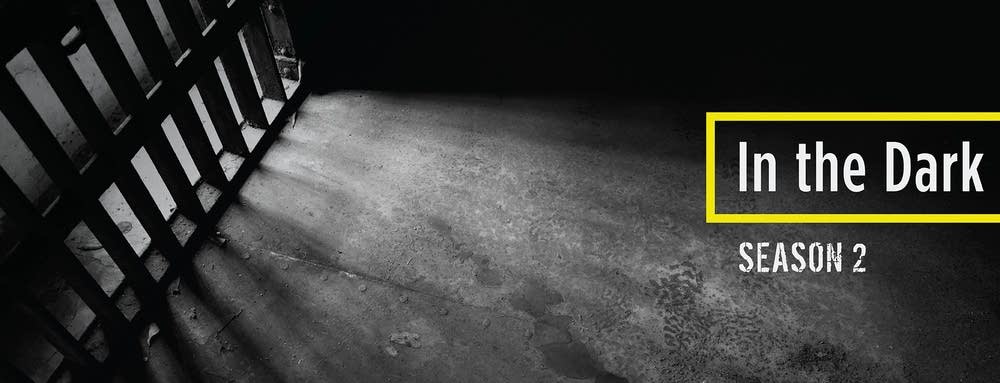What exactly are prosecutors allowed to do?
They can rely on jailhouse informants, if the testimony is true.

When a prosecutor puts a jailhouse informant on the stand, there are two key questions: Is the informant telling the truth, and, if not, does the prosecutor know the informant is lying?
Prosecutors have a legal and ethical obligation to not use a witness they know isn't telling the truth. A prosecutor's duty isn't to win a conviction, but to seek justice.
In Curtis Flowers' first trial, in 1997, Maurice Hawkins and Frederick Veal were likely lying when they testified that Flowers had confessed to them in the Leflore County Jail. Both later recanted and neither testified at any of Flowers' subsequent trials.
Frederick Veal said his statement had been coerced and that he'd been threatened when he hesitated to take the stand, according to court records. More than 15 years later, Hawkins and Veal both signed affidavits reaffirming their recantations. Hawkins died in 2016. Veal hasn't wavered in his assertion that Flowers never confessed to him.
Frederick Veal was, by his own admission, not credible. In 1997, he had three prior convictions for uttering forgery — essentially lying with an intent to defraud. Maurice Hawkins, according to records turned over by the state during discovery, was struggling with drug addiction.
Their testimonies in Flowers' first trial were full of internal inconsistencies. Hawkins said, "We was up one night playing solitaire," when Flowers told him, "He hate[d] [that] he had to kill his own cousin." Solitaire is typically a one-man card game. None of the victims at Tardy Furniture was Flowers' cousin.
Veal testified that Curtis said that, following the murders, "He smoked some crack. ... I will say a thousand dollars' worth." On cross-examination, defense attorney Billy Gilmore asked Veal, "Are you aware that the police picked [Flowers] up immediately after this, and they didn't say anything about him being on crack?" "No, sir," Veal replied.
In a sworn affidavit, Veal said the statement he gave while in jail and his testimony based on that statement were crafted in the presence of District Attorney Doug Evans and investigator John Johnson, based on details they provided. "They couldn't have believed it. ... I didn't tell them that he confessed. They came to me and told me what to say," Veal said. In his affidavit to Curtis Flowers' lawyers, Maurice Hawkins said, "Flowers never told me that he killed anybody."
Evans and Johnson declined to discuss the details of these confessions with APM Reports.
Before trial, a prosecutor is legally required to turn over to the defense any evidence that an informant might be lying, or that he has been given or promised some sort of benefit in exchange for his testimony.
In his closing argument of the first trial, Evans said that Hawkins and Veal had "absolutely nothing to gain" from testifying. Hawkins later said in an affidavit that he understood some pending charges against him would be dropped. Veal said under oath that he was enticed with talk of leniency and a cash reward, though he says he never received it. Veal said these incentives are what motivated him to fabricate evidence against Flowers.
The offering of leniency from prosecution in exchange for information is a pervasive practice across the American criminal justice system, said Alexandra Natapoff, a law professor at the University of California at Irvine who's written a book on criminal informants. She said there is a widespread understanding in jails that coming forward with information will be met with a reward, even if one hasn't been explicitly offered.
"It doesn't mean that every jailhouse informant is lying, but we know the risks are enormous that the information that they're giving to the government is untrue," Natapoff said. "They're working, in effect, for pay."
This type of arrangement can have terrible consequences. According to a 2005 study by Northwestern University School of Law, the testimony of criminal informants is the leading cause of wrongful convictions in death penalty cases in the United States.
"Ironically, in the cases where there's a lot of good, solid evidence, the government needs jailhouse snitches less. But we see time and time again, in a weak case, in a case where it's difficult to prove guilt, that jailhouse informants fill in the gap," Natapoff said.
In recent years, several states have considered legislation that would subject the use of criminal informants to added scrutiny. These have included outright bans on snitches in capital cases, pretrial reliability hearings, stricter caps on monetary benefits offered, and enhanced tracking and disclosure requirements, for instance, revealing how many previous cases an informant has testified in.
But jailhouse informants should not be automatically disregarded, said Robert Johnson, former commissioner of the Mississippi Department of Corrections and a former police chief of Jackson. "There's a heavy duty to check out the information and determine whether or not it's legitimate," he said. "You have to be skeptical, but that's not saying you reject all the information."
Johnson added that investigators can't send inmates into cells specifically to extract a confession. "That's a tactic that's suspect in my estimation and really shouldn't be used. If there's information that comes your way from a random assignment of people from a cell, then that's fine. But to do that with the specific intent of soliciting information is ripe for abuse."





